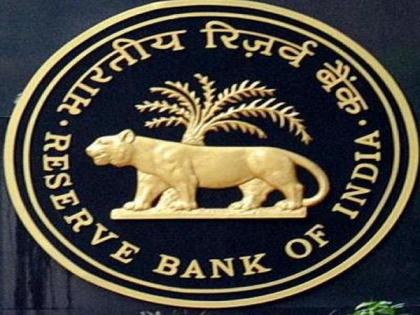RBI directs banks to restrict capital market exposure
By ANI | Published: May 3, 2024 06:32 PM2024-05-03T18:32:55+5:302024-05-03T18:35:03+5:30
New Delhi [India], May 3 : The Reserve Bank of India (RBI) has issued directives to banks regarding their ...

RBI directs banks to restrict capital market exposure
New Delhi [India], May 3 : The Reserve Bank of India (RBI) has issued directives to banks regarding their exposure to the capital markets, emphasizing compliance with prescribed guidelines. The latest circular, pertains specifically to the "Banks' Exposure to Capital Market - Issue of Irrevocable Payment Commitments (IPCs)".
The RBI's move comes in response to changes in the settlement cycle introduced by stock exchanges, shifting from T+2 to T+1 rolling settlement for equities.
Consequently, the existing guidelines on the issuance of IPCs by banks have been reviewed to ensure alignment with the new settlement cycle.
Custodian banks issuing IPCs must have a clause in their agreements with clients, granting the banks an inalienable right over the securities to be received as payout in any settlement. However, this clause is not mandatory for pre-funded transactions, where clear INR funds are available in the customer's account or where the bank's nostro account has been credited before IPC issuance.
The maximum intraday risk for custodian banks issuing IPCs is capped at 30 percent of the settlement amount. This calculation is based on the assumption of a 20 percent downward price movement of equities on T+1, with an additional margin of 10 percent for further downward movement.
If the margin is paid in cash, the exposure will be reduced by the amount of margin paid. If margin is paid with permitted securities to Mutual Funds / Foreign Portfolio Investors, the exposure will be reduced by the amount of margin after adjusting for the prescribed haircut by the Exchange on the securities accepted as margin.
If any exposure remains outstanding at the end of T+1 Indian Standard Time, capital must be maintained on the outstanding capital market exposure in accordance with the Master Circular - Basel III Capital Regulations dated April 1, 2024.
Banks' underlying exposures to their counterparties, arising from intraday Capital Market Exposure (CME), will be subject to limits prescribed under the Large Exposure Framework dated June 3, 2019.
The circular clarifies that the instructions for the T+2 settlement cycle remain unchanged.
These directives are effective immediately upon issuance and aim to ensure prudent risk management practices among banks operating in the capital markets.
In light of these developments, banks are expected to adjust their operations accordingly to comply with the revised guidelines laid out by the RBI.
Disclaimer: This post has been auto-published from an agency feed without any modifications to the text and has not been reviewed by an editor
Open in app